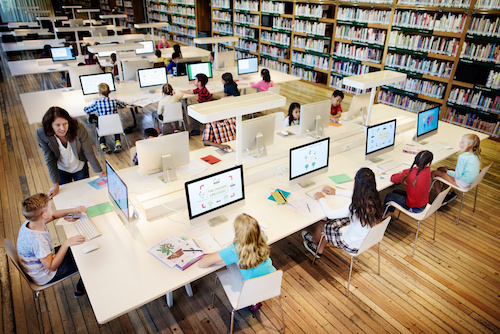The traditional classroom, once the undisputed cornerstone of education, is no longer the sole gateway to knowledge. In just over two decades, online education has evolved from a niche alternative to a transformative force that’s reshaping how we learn, who can access quality education, and when that learning takes place. This digital revolution isn’t just changing education—it’s democratizing it in ways previously unimaginable.
Breaking Down Geographic Barriers
Perhaps the most immediate way online education democratizes learning is by eliminating geography as a limiting factor. A student in rural Montana can now attend lectures from Harvard professors, while someone in a remote village in Kenya can access the same programming courses available to students in Silicon Valley. This geographic liberation has profound implications for global equity in education.
The COVID-19 pandemic accelerated this trend dramatically. When universities worldwide shifted online almost overnight, students discovered they could maintain their education regardless of physical location. Many institutions have since adopted hybrid models, recognizing that online accessibility opens doors for students who might never have been able to attend traditional in-person programs.
Economic Accessibility: Education Without the Price Tag
Traditional higher education has become increasingly expensive, with student debt reaching crisis levels in many countries. Online education offers a powerful alternative, often at a fraction of the cost. Massive Open Online Courses (MOOCs) through platforms like Coursera, edX, and Khan Academy provide world-class education at little to no cost.
The economic benefits extend beyond tuition savings. Students save on housing, commuting, textbooks, and other campus-related expenses. This cost reduction makes education accessible to working adults, parents, and others who might not be able to afford traditional educational pathways.
Flexible Learning for Modern Lives
The traditional academic calendar and rigid class schedules assume a particular lifestyle—one where education takes precedence over work, family responsibilities, and other life circumstances. Online education challenges this assumption by offering unprecedented flexibility.
Working professionals can pursue advanced degrees while maintaining their careers. Parents can attend virtual classes after putting their children to bed. Students with disabilities that make campus attendance challenging can participate fully from their homes. This flexibility transforms education from something that requires life reorganization into something that can adapt to life’s realities.
Personalized Learning at Scale
Traditional classrooms operate on a one-size-fits-all model, where the pace and style of instruction must accommodate a broad range of learners. Online education enables personalization at unprecedented scale. Adaptive learning technologies can adjust content difficulty in real-time, ensuring students are neither overwhelmed nor under-challenged.
AI-powered platforms can identify knowledge gaps and provide targeted remediation, while advanced students can accelerate through material they’ve mastered. This personalization was once available only to those who could afford private tutors; now it’s becoming standard in online educational platforms.
Diversity of Learning Resources
Online education has exploded the variety of available learning resources. Beyond traditional lectures, students can access interactive simulations, virtual reality experiences, gamified learning modules, and multimedia content that cater to different learning styles. Visual learners can benefit from infographics and videos, while kinesthetic learners can engage with interactive elements and virtual labs.
This diversity extends to instructional approaches as well. Students can learn programming through coding bootcamps, creative writing through online workshops with published authors, or data science through project-based learning with real-world datasets. The internet has democratized not just access to education, but access to educational innovation.
Challenges and Limitations
Despite its democratizing potential, online education faces significant challenges. The digital divide remains a substantial barrier—reliable internet access and suitable devices are prerequisites that aren’t universally available. This technological gap can perpetuate existing educational inequalities rather than eliminating them.
Online learning also requires high levels of self-motivation and time management skills. Without the structure of traditional classrooms, some students struggle to stay engaged and complete courses. The lack of face-to-face interaction can also diminish the collaborative and social aspects of learning that many find valuable.
Quality control presents another challenge. The democratization of education creation means that not all online courses meet rigorous academic standards. Students must navigate a vast landscape of varying quality, making it difficult to identify truly valuable learning opportunities.
The Future of Democratic Education
As technology continues to advance, online education’s democratizing potential will likely expand further. Virtual and augmented reality promise to make remote learning even more immersive and interactive. Artificial intelligence will enable even more sophisticated personalization and support systems.
Blockchain technology could create more secure and portable credential systems, allowing students to accumulate verified skills and knowledge from multiple sources. This could break down the monopoly of traditional degree-granting institutions and create more flexible pathways to career advancement.
Conclusion
Online education is fundamentally altering the landscape of learning, making quality education more accessible, affordable, and adaptable than ever before. While challenges remain, the democratizing effects are undeniable. Students who were once excluded by geography, economics, or life circumstances now have unprecedented access to learning opportunities.
The classroom of the future won’t be confined by four walls or limited by zip codes. Instead, it will be as boundless as human curiosity itself, creating a world where anyone with the desire to learn can find a way to do so. This isn’t just an educational revolution—it’s a democratic one, promising to unlock human potential on a global scale.
As we move forward, the challenge will be ensuring that this democratization reaches everyone, not just those already privileged with technology access and digital literacy. Only then will online education fulfill its promise of truly learning for everyone, everywhere.

